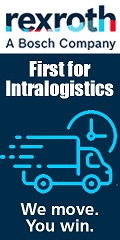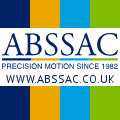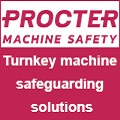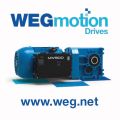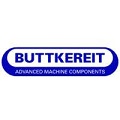
Posted to News on 25th Jun 2007, 19:20
Why OEMs should not use the cheapest bearings
Adrian Menzies of Revolvo argues that the lowest cost bearing for the OEM is usually the most expensive for the end-user.
Despite all the recent discussions regarding whole-life costs, the conflict remains between the requirement of OEMs to achieve the lowest installed cost for new equipment, and that of the end user for improved reliability and longer operating life.
The OEM is all too aware that quoting a high price can cost him an order; yet as has been revealed on many high-profile occasions, things tend to go wrong sooner or later with equipment that is built down to a cost.
Unfortunately, despite the many painful lessons, the 'cost down' philosophy still appears to permeate all levels of industrial supply, from bearings, to hydraulic and pneumatic components, drives, gearboxes, etc. What this means for the eventual end user of these products – probably a manufacturer with deadlines to meet – is a potential time bomb in his production system. In today's world, with downtime a key production indicator (KPI), this is clearly not acceptable.
New approach to specifying
Increasingly, manufacturing companies are waking up to the fact that to achieve performance gains and optimise the full potential of their existing assets, they must achieve improved production efficiencies. However, to realise these efficiencies downtime must be minimised, which, in turn, means that a whole new approach of specifying components and equipment that might cost a little more initially, but are more fit for purpose and economical over the longer term.
One product area that aptly highlights this philosophy is rolling bearings. Overwhelmingly, solid bearings comprise the major segment of rolling bearings in use today, yet they are difficult to fit, impossible to inspect while in place, and even more difficult to replace when they fail. However, because solid bearings are inexpensive, hardly anyone questions that they may not be the most cost-effective in the long-term for all applications. They do not, of course - though the alternative of split roller bearings (SRBs) can be initially considerably more expensive, which is why they are generally used only in continuous process industries where bearing failures cannot be tolerated.
But surely the same is true in manufacturing industries; so why do process industries bear the additional cost? The answer is threefold: much easier bearing fitting – typically a split roller bearing takes only 15 per cent of the time taken to fit a solid bearing; the ability to inspect the bearing in situ; and the ease and speed with which split roller bearings and their cartridges can be replaced if there is a problem, without requiring extensive machine dismantling.
Superior sealing
From the technical, economic and design points of view, split roller bearings offer a host of advantages and cut downtime significantly. Basically, the simplicity of fitting a split roller bearing, compared to a solid bearing, is a major factor in its longevity. Unlike solid bearings, SRB bearings are totally split to the shaft, a design that both simplifies and expedites installation, and cuts downtime to approximately one-eighth of that required to replace solid bearings of the same size. In addition, Revolvo SRB bearings can have a longer life span because they cannot be cross-located. They also provide superior sealing arrangements, which means a longer bearing life with greatly reduced levels of maintenance.
A further advantage is that the design of Revolvo SRB split bearings allows for complete bearing removal and replacement by simply supporting the shaft. There is no need to lift the shaft, or obtain access to the shaft ends, therefore expensive and awkward-to-handle lifting equipment is not required. This intrinsic feature is extremely valuable, generally, but especially regarding large machines, where sheer weight and size can be a barrier to fast and effective servicing. It allows for much faster bearing replacement, which can save continuous-type businesses a lot of money in costly downtime.
The example in the table below illustrates the savings that can accrue by using SRBs. The data is taken from an actual example, where solid bearings were replaced by SRB split bearings due to the costs that were being incurred as a result of extended times for bearing installation and replacement.
As the table shows, the initial purchase costs for the SRB far outweigh those of the solid bearing. However, this is the only area where solid bearings have the advantage. Once the costs for labour to replace failed bearings - plus the cost of production losses - are considered, the positions are reversed, with the total overall costs for the SRB being approximately one-fifth of those of the solid bearing.
tstart{c,90%}
thead{Production dependent:||Yes|No}
tdata{||Sold bearing|SRB bearing}
tdata{1|Cost of bearing|£1000|£2500}
tdata{2|Est. length of outage (hrs)|10|2}
tdata{3|People needed to replace bearing|3|1}
tdata{4|Hourly labour cost|£25|£25}
tdata{5|Hourly cost of lost production|£10,000|£10,000}
tdata{6|Equipment rental cost/hour||}
tend{}
To calculate the total cost:
tstart{c,90%}
tdata{||Solid bearing|SRB bearing}
tdata{A|Labour cost for bearing change (line 2 x line 3 x line 4)|£750|£50}
tdata{B|Production loss during outage (line 5 x line2)|£100,000|£20,000}
tdata{C|Labour cost + production loss (line A + line B)|£100,750|£20,050}
tdata{D|Equip. rental cost for bearing change (line 6 x line 2)||}
tdata{E|Bearing + labour + prod. loss + equip. cost|£100,850|£20,550}
tend{}
Subtract the total cost of line E on the left from the total cost of line E on the right to find: Savings possible by using SRB Split Roller Bearings = £80,300.00
Supporting the above illustration is the recent application of Revolvo SRB split bearings at a number of mines owned by Anglo Platinum in South Africa. The split roller bearings were employed to replace solid bearings on vent fans. These fans are crucial to production, and with downtime costs that could reach R500,000 (£72,000) per hour, the ability of the SRB to be installed in just 15 per cent of the time taken to fit a comparable solid bearing meant that downtime costs were kept to the absolute minimum.
The number of follow-up orders that Revolvo has received for its SRBs evidences the success of Anglo Platinum's conversion to SRB units. To date, orders in excess of R900,000 (£130,000) have been received, providing split bearings for fans at a further seven mines. These bearing installations are by no means exclusive to the platinum sector: Revolvo also supplies split roller bearings for service on ventilation fans within the iron ore, chrome, gold, coal, paper and food sectors.



